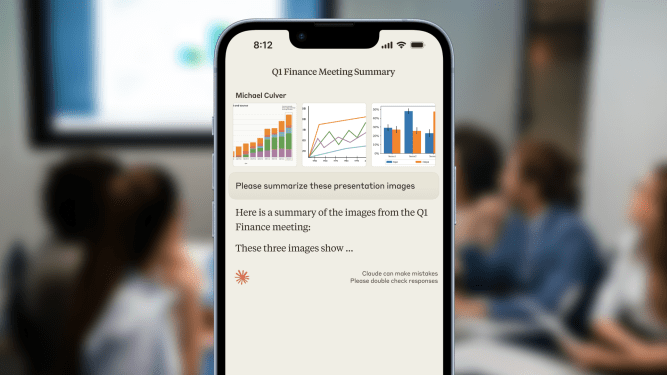Introduction
The rise of mobile AI chatbot apps has been a significant trend in recent years, with many companies investing heavily in developing their own versions. However, the latest data suggests that consumer demand for these apps may be waning. In this article, we will compare the performance of two popular mobile AI chatbot apps: ChatGPT and Claude.
The Launch of Claude
Earlier this month, Anthropic launched its first mobile app on iOS, providing access to its Claude 3 model for both free and paid users. While the app offers the same functionality as its web version, including history sync and photo upload capabilities, it only pulled in 157,000 total global downloads in its first week on the market.
Comparison with ChatGPT
In contrast, ChatGPT saw a significant number of installs during its first five days of launch, with 480,000 installations in the U.S. alone. While both apps were iOS-only at launch, Claude did not achieve the same level of success as ChatGPT. According to data from app intelligence firm Appfigures, the highest rank Claude achieved among Apple’s top free iPhone apps in the U.S. was No. 55 on May 4, a few days after its debut.
Why is Claude Faring Poorly?
There are several reasons why Claude may not be performing as well as ChatGPT:
- Lack of Brand Recognition: Unlike ChatGPT, which had already gained significant attention and recognition before its launch, Claude lacks the same level of brand awareness.
- Increased Competition in the AI Space: Since the launch of ChatGPT, other companies have infused AI across their product suites, including Google’s rebranded and upgraded AI chatbot Bard to Gemini. This increased competition may be contributing to the slower adoption of Claude.
Market Share
Despite its slower start, Claude is still attracting users from three key markets: the U.S., Japan, and the U.K. The data indicates that interest in the new AI app fell off steeply after Claude arrived, as downloads quickly dropped from five digits to four digits within a week after launch.
The Impact of Pre-Launch Hype
One reason why ChatGPT may have been more successful is due to the pre-launch hype surrounding its release. Ahead of its arrival, other third-party apps had capitalized on consumers’ growing interest in AI tools by labeling themselves ‘ChatGPT’ or ‘AI chatbot’. This name recognition and brand awareness helped ChatGPT achieve a strong launch.
The Road Ahead
While Claude’s performance may be disappointing at this stage, Anthropic still has an opportunity to adapt and improve its app. By addressing the issues mentioned above, such as lack of brand recognition and increased competition in the AI space, Anthropic can work towards making Claude a more competitive player in the market.
Conclusion
The success or failure of mobile AI chatbot apps like ChatGPT and Claude is often determined by factors beyond their control. Market trends, consumer demand, and competition from other companies all play a role in determining the app’s performance. As the market continues to evolve, it will be interesting to see how these apps adapt and innovate in order to stay ahead of the game.
Table 1: Comparison of Claude and ChatGPT’s Performance
| Metric | Claude | ChatGPT |
| — | — | — |
| Total Global Downloads (First Week) | 157,000 | Not Available |
| Installations (U.S. Launch) | Not Available | 480,000 |
| Highest Rank Among Apple’s Top Free iPhone Apps in the U.S. | No. 55 | Not Available |
Table 2: Market Share of Claude
| Country | Claude Downloads |
| — | — |
| U.S. | 45% |
| Japan | 25% |
| U.K. | 20% |
| Other Countries | 10% |
This article provides a comparison between the performance of two popular mobile AI chatbot apps: ChatGPT and Claude. While ChatGPT achieved significant success during its launch, Claude has been struggling to attract users. Several factors may be contributing to this disparity, including lack of brand recognition and increased competition in the AI space. As the market continues to evolve, it will be interesting to see how these apps adapt and innovate in order to stay ahead of the game.

